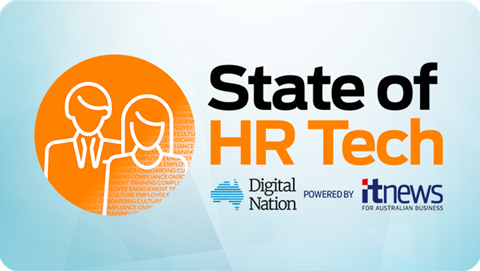Uniting is using assisted and augmented reality glasses for resident care as the healthcare organisation uplifts its broader transformation efforts.
Ramesh Raghavan, digital, innovation and experience lead at Uniting told Digital Nation in the first four to six weeks of using only four AR devices the healthcare organisation prevented nine hospitalisations.
Raghavan added Uniting dropped its referral time by 75 percent while also noting a complete cut in consultant travel time and roughly 10 to 11 hours in time saved in productivity.
Uniting, which was also awarded ‘finalist innovation of the year’ by Smart Care Technology for its AR reality glasses solution for wound assessment, is working through a wider digital transformation.
“There's a massive workforce crisis, which the industry is facing,” Raghavan said.
“Apart from the fact that we did a reset off our core business strategy, which is around increasing our reach, spreading our services across rural NSW, we had to come up with solutions to enable telehealth, ensure that our workforce is able to reach to the point of care effectively and efficiently.”
He said digital “is a key enabler” underpinning transformation, stating “the real transformation has to happen at the point of care.”
The TeamViewer solution was introduced roughly a year ago and found a way to connect patients back to the clinical practitioner.
Raghavan explained a patient may travel to one of its residential aged care sites where a health issue is identified and they can connect to the clinical practitioner.
From here patients can be connected to a doctor or consultation with the technology reducing the chain of events, we brought it down to within an hour
“The key thing which we did is we added a thermal sensor, which is typically used in the energy industry or mining industry to look at the temperature of assets.
“We use that thermal sensor along with this technology to look at the damage on the skin tissue around them and that could tell us this needs immediate action.
“The whole technology around the real wear glasses, the thermal sensors and the TeamViewer software, that cohesive solution in the hands of the frontline staff talking to a clinical practitioner, with GPs and doctors and families … was a complete game changer for us.”
Raghavan said access to the technology has been simple as it's often a “clinical nurse there who's wearing the glasses.”
The AR glasses solution is now being rolled out to the wider residential aged care sites following the eight-week pilot completed last year.
The trial was completed in a “very structured fashion because to take it from innovation to practice is a big leap”.
“Most of the innovations tend to falter away, but we didn't want that to happen so we did that innovation for eight weeks and we have now, across the state, rolling out across 22 of our residential aged care sites."
With the new device being rolled out Raghavan said this means “for every residential aged care site, we'll have one device.
“Uniting has around 70 residential aged care sites and we plan to have one in every home very soon,” he added.
Raghavan said Uniting is taking a co-designed approach to its transformation efforts.
“That's the approach we want to take … because obviously it improves the care outcomes and sometimes, they can immediately hear the voice of the clinical practitioner who they are really comfortable with.”
Uniting is now looking into emerging technology such as generative AI, according to Raghavan.
“There is innovation, which we are currently doing with Microsoft as part of the AI commission lab, which is around using a generative agent for policies and procedures.
“Having that accessibility of that policy and procedure, we are currently already doing it for mobile and laptops is something which we want to do very soon and bringing that onto this platform is, for me the next step.”
He added the company will also be looking into note summarisation capabilities which is expected to assist healthcare workers when pulling up patient history.
“We'll use some artificial intelligence and machine learning techniques to give that and the last, but not the least … is the voice-to-text capture of the case notes.”
“These are broadly some of the things which we are keen on addressing,” Raghavan said.
Click here to register and secure your place for our Digital As Usual breakfast event, this Wednesday, August 7th at the Establishment Ballroom in Sydney.



_(22).jpg&h=140&w=231&c=1&s=0)

_(23).jpg&h=140&w=231&c=1&s=0)




_(26).jpg&w=100&c=1&s=0)
 iTnews Executive Retreat - Security Leaders Edition
iTnews Executive Retreat - Security Leaders Edition











_(1).jpg&h=140&w=231&c=1&s=0)



